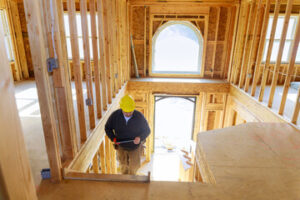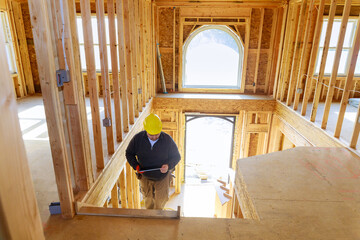Working as Home Inspector Colorado Springs CO can be a rewarding career. It allows you to help homeowners keep their homes safe and healthy for their families. It also allows you to set your own schedule.
A home inspection is important for any prospective buyer. It can reveal potential problems that could affect the sale of a home.
Home inspectors spend much of their time on the job walking around properties. They look for damage to the structure of the house and take notes on what they find. After the inspection, they create a report for their clients. These reports can contain recommendations for repairs or issues that should be addressed. They also provide a summary of the overall condition of the property. They usually include pictures and a description of any issues. Home inspectors are also often required to take samples of air and water quality. These samples are tested to determine if there is a presence of mold or other problems.
While working as a home inspector can be very rewarding, it’s important to maintain your reputation. A bad review can be very damaging to your business. However, there are some things you can do to turn a negative review into an opportunity. First, take a breath and let your emotions cool down. Then, review the customer’s complaint carefully. Try to understand their point of view and see if there are ways you can improve your service.
A good home inspector is someone who can offer unbiased opinions. They should have experience and a strong understanding of the building’s structure. Ideally, they should be licensed and insured. This protects the client from being overcharged and allows them to file a claim in case of an accident or injury on site.
The best way to find a home inspector is through a referral from a real estate agent. A top real estate agent should be able to recommend an inspector they trust. However, it is important to find out whether or not the agent is getting paid for their recommendation. This can lead to a conflict of interest.
The reputation of a home inspector is determined by many factors, including the number of positive reviews and the amount of work that they do. Having a good reputation can help them gain more business and attract customers. It can also increase their earning potential, as they can charge higher fees for services like radon testing, wood-destroying insect inspections, and septic tank inspections.
Experience
Home inspectors must have excellent attention to detail to thoroughly examine a property and prepare a detailed report. They also need to be able to identify potential issues and recommend solutions. They must be able to communicate clearly with clients and real estate agents. This includes explaining complex findings in a manner that is easy to understand.
Experienced home inspectors know that their reputation depends on delivering high-quality, professional inspections. They can provide valuable advice and insights that help their clients make informed decisions about their potential investments.
A good home inspector can identify the problems with a property and provide an accurate estimate of repair costs. They can also recommend a qualified contractor for repairs. This can save the client time and money while ensuring that the job is done properly.
Homebuyers should attend the home inspection to observe the process and ask questions. In some cases, this may even speed up the real estate transaction. In addition, it can be helpful for them to learn how to prevent and troubleshoot problems after they move in.
A home inspector should be familiar with the local area and qualified to inspect a wide variety of homes. They should also have specialized skills for certain types of inspections, such as those for the foundation, chimney, crawl space, and HVAC system. This will give them a competitive edge and help them expand their client base.
It is important for a home inspector to be licensed by their state. In some states, this requires completing a specified number of training hours. It is also necessary to obtain general liability insurance and errors and omissions coverage. These policies protect the home inspector in the event of a lawsuit.
Home inspectors can find work by networking with real estate agents, brokers, and mortgage professionals. They can also promote themselves online and by attending events. Many inspectors also join professional associations, which can provide them with a network of other home inspectors. This can help them grow their business and keep up with industry news and trends.
License
Home inspectors must pass a background check and an examination to receive their license. In addition, they must attend continuing education classes to keep their license current. They are also required to report their findings to the state on a regular basis. Licensed home inspectors are qualified to perform a variety of inspections, including wood-destroying insects, radon testing, and private well inspections. Home inspectors may also refer homebuyers to local repair services and specialized inspection services for things such as chimneys, pools, and HVAC systems.
Licensed home inspectors must have at least 140 hours of approved pre-license education, including 40 hours of unpaid inspection experience under the supervision of a licensed inspector. They must also complete 100 hours of paid inspection experience and pass a New York City Council-approved exam. The law also prohibits home inspectors from having conflicts of interest, such as compensating real estate agents for business referrals or inspecting properties they have a financial stake in.
Most states require a license for those who perform home inspections for compensation. However, some states allow people to perform home inspections without a license if they are not compensated for their work. However, some states require that purchase contracts specify that home inspections must be performed by a licensed professional.
Homebuyers should be present during the home inspection so they can ask questions and discuss the findings with the inspector. This allows homebuyers to get the most out of their home inspection and make informed decisions about their investment.
In the event that a homebuyer is dissatisfied with the results of their home inspection, they can file a complaint with the inspector’s licensing body. In most cases, the governing body will investigate the complaint and take appropriate action. Homebuyers can find contact information for their state’s governing bodies by visiting their websites. If the governing body finds that the complaint is valid, they will contact the inspector and request an explanation. If the inspector is unable to resolve the complaint, the governing body may decide to sanction the inspector. A homebuyer can then choose to hire a different inspector or file a lawsuit against the inspector.
Insurance
Home inspectors have an amazing job: they get to see a lot of the inner workings of a house before someone else buys it and can often identify problems that might otherwise go unnoticed by potential buyers. But a home inspection isn’t a magic bullet; even the most skilled and detail-oriented home inspectors can make mistakes.
That’s why home inspectors need professional liability insurance, which is also known as errors and omissions (E&O) insurance. This insurance covers the cost of legal fees and damages if a client can prove that you missed or failed to detect something during your inspection that caused them financial harm. For example, suppose you didn’t include a crack in the foundation in your report, and the homeowner later discovered that the house would soon collapse. Then you could be sued for thousands of dollars.
Another essential insurance coverage for a home inspector is general liability. This type of coverage protects you against allegations that you caused bodily injury or property damage during a home inspection. For instance, if you drop a ladder on a client’s car or break a window in the building that you’re inspecting, your general liability insurance can help pay for the repair or replacement costs.
If you have employees, you should also get workers’ compensation insurance, which pays for medical expenses and lost wages if an employee is injured or killed in the workplace. This insurance is typically required by law in many states. You can also get business owner’s policy (BOP) insurance, which combines general liability and commercial property insurance into one convenient package. This can save you money and make it easier to manage your business insurance.
If you’re ready to start your career as a home inspector, it’s important to take the time to find the right insurance for you. Skimping on coverage can save you a few bucks, but it could also leave you with major financial losses down the road. By finding a comprehensive home inspector insurance plan that includes both E&O and liability, you can focus on your work without worrying about the risks. With combination policies starting at $89 a month, InsuranceBee makes it easy to find a package that fits your needs and budget.
